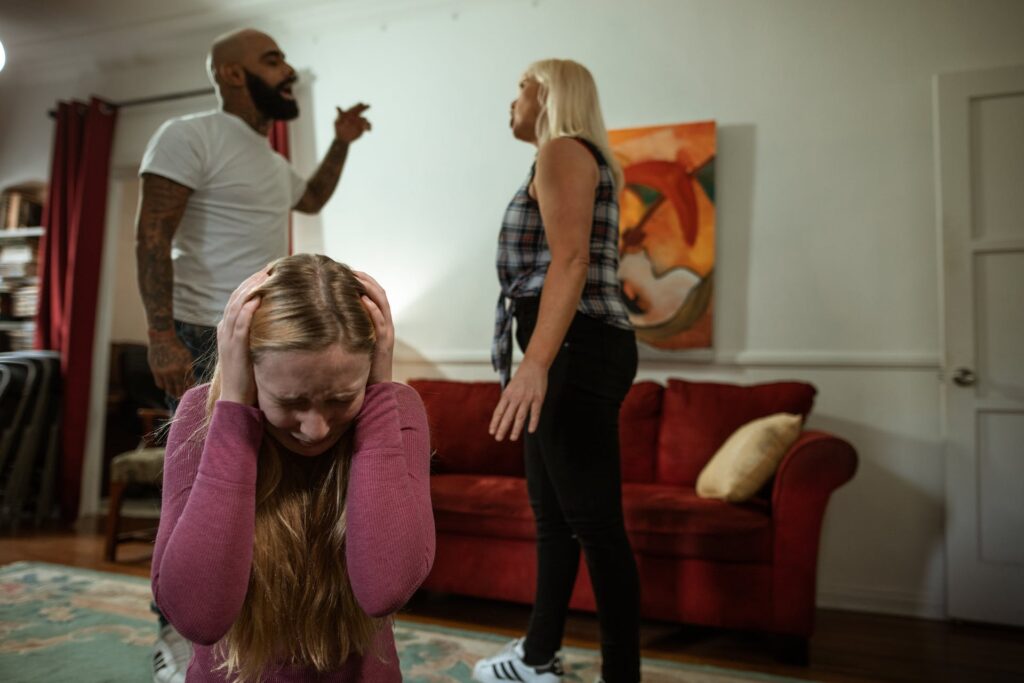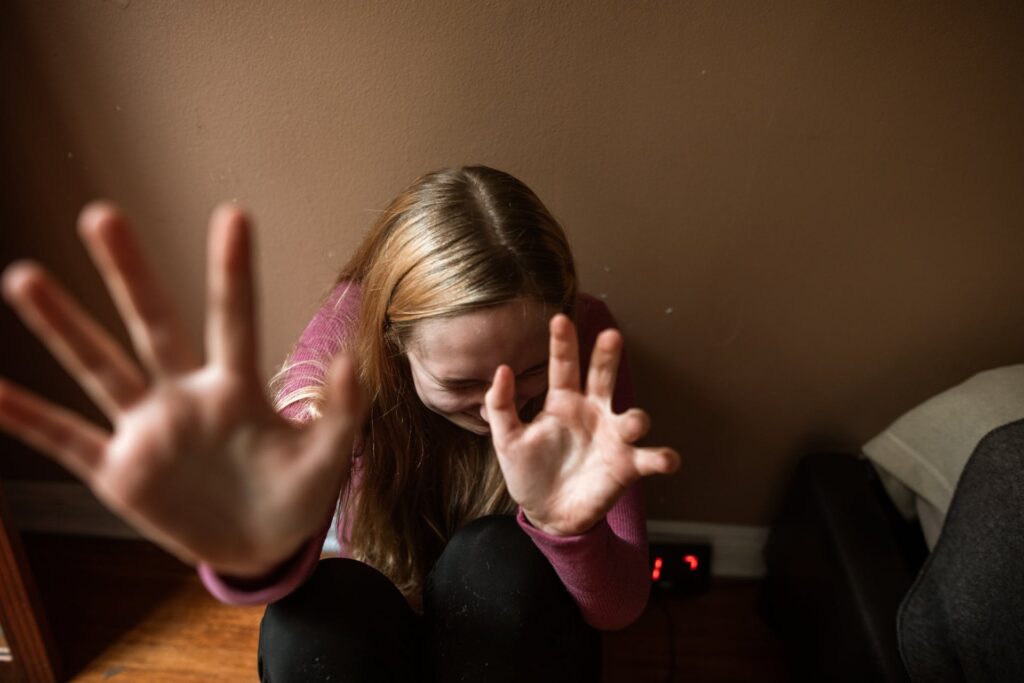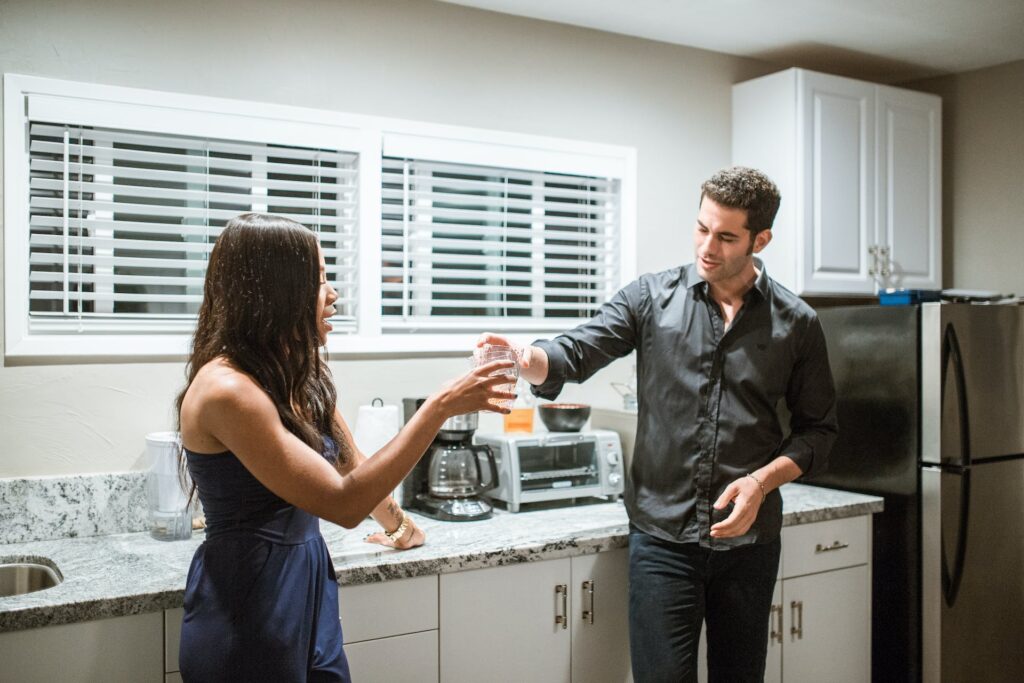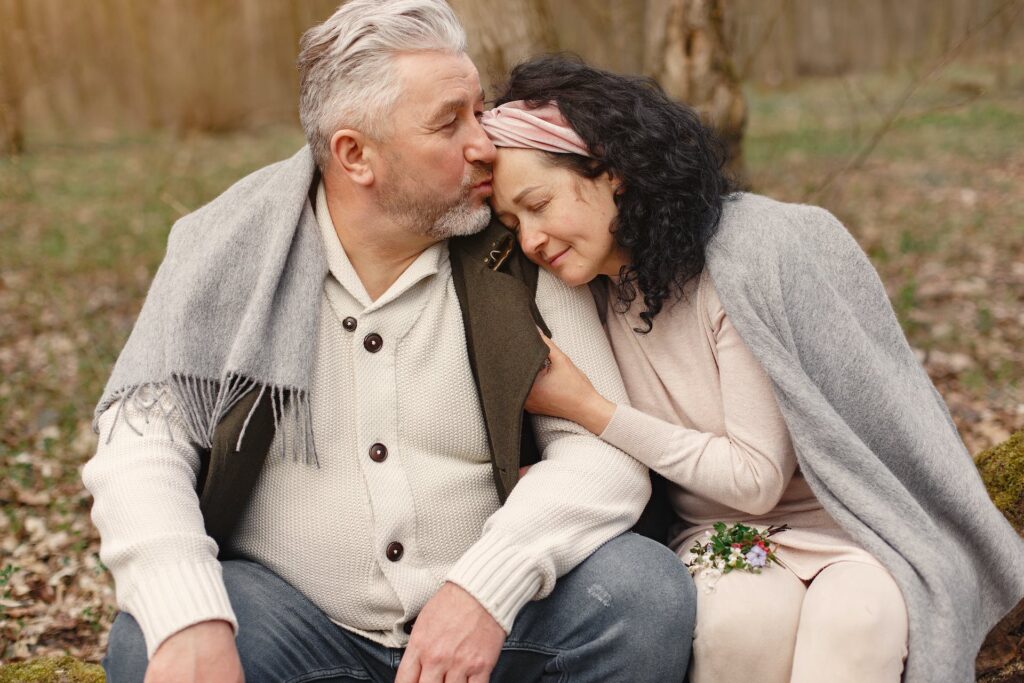In our previous blog, we highlighted the complexities of toxic relationships, acknowledging their presence in various aspects of life, be it between spouses, romantic partners, siblings, relatives or even in the professional circle. Having already explored the dynamics of toxic relationships in the workplace, let us now shed light on the intricacies of Toxic Relationships between Couples – whether they wear the hats of husband and wife, boyfriend and girlfriend, or share the intimacy of lovers.
In the complex tapestry of human relationships, the bond between couples is perhaps the most delicate and deepest. Whether it’s the warmth of marriage, the excitement of a new romance, or the familiarity of a long-term partnership, the dynamics between two people in love can shape the direction of their lives. However, not all love stories turn out like fairytales; Some people can take a deeper turn into what we call toxic relationships. Let’s delve deeper into this complex area, exploring the shadows that can tarnish the beauty of love.
Even in my previous blog, I have shared a logical incident of my neighbors Mr. and Mrs. Brown. The impact of their daily fights on the mental health of their delicate 4-year-old daughter was so profound that they themselves did not realize when she fell victim to the deadly disease Post Traumatic Stress Disorder (PTSD) . Sometimes, seeing the condition of that girl, my soul trembles that the girl is going to have to suffer the consequences of their fight. The tender childhood of that delicate girl will be filled with so much sorrow and pain.
What is a Toxic Relationship?
As we move into the realm of dating, it’s quite common to realize that some of our assumptions about relationships may be toxic without us even realizing it. So, before we go any further, let’s sort out the concept of a toxic relationship and clarify what it really means. Simply put, a toxic relationship is one that makes you feel unsupported, misunderstood, disrespected, or under attack. It’s like a storm cloud looming over your well-being, casting a shadow emotionally, psychologically and sometimes even physically.
In these relationships, recurring patterns of negativity take center stage, in which at least one partner causes harm, whether intentionally or unintentionally. Sometimes, this is the result of intentional abuse or manipulative behavior, creating a feeling of entrapment or exhaustion for one partner. These harmful behaviors may arise from patterns learned in childhood or experiences in adulthood that have not been replaced with healthy expectations.

Dealing with toxic relationships may involve investing time and effort to address the underlying issues, allowing trust to slowly rebuild. However, for some people, it is simply a case of two individuals who, while unique in their own way, don’t quite fit together. It is important to distinguish a toxic relationship from labelling a partner as a toxic person, although both scenarios can co-exist.
Individuals struggling with mental health challenges, such as bipolar disorder, major depression, or depressive tendencies, may find themselves particularly vulnerable to toxic relationships due to their increased sensitivity to negative emotions. For example, a person’s emotional grip in the midst of a depressive episode may be somewhat weakened, making him or her more vulnerable to toxic influences. Still, it’s important to remember that toxic people can affect anyone.
Now, let’s unravel the complexities of toxic relationships, find out what makes them toxic and provide insight into determining if you find yourself embroiled in a relationship. Additionally, we will discuss practical tips for managing these relationships effectively.
How can you spot a toxic relationship? What are the signs of a toxic relationship?
In the complex dance of relationships, toxicity takes center stage when love is prioritized at the expense of the three important pillars that sustain a healthy relationship: respect, trust, and affection. This is akin to building a fragile castle on unstable ground, where the absence or neglect of these key components weakens the foundation, leaving the structure vulnerable to collapse. In short, a toxic relationship emerges when the pursuit of love overrides the fundamental elements of respect, trust, and affection that are necessary to foster a strong and lasting bond.
Balancing the delicate line between a healthy and troubled relationship can be quick and elusive, even when the signs appear obvious on the outside.
Let’s embark on a journey to uncover the indicators of a toxic or harmful relationship and, more importantly, learn the art of addressing these signs in a way that is both nourishing and safe.
Toxic Communication
In the rhythm of every relationship, good communication works like a heartbeat, keeping things alive and vibrant. Still, it’s surprisingly easy to inadvertently lose track. Instead of soothing tones of kindness and mutual respect, your exchanges may echo with disdain or criticism, fuelled by an underlying feeling of contempt.
Have you found yourself making hurtful comments while interacting with friends or family? Perhaps you jokingly repeat what they say when they’re not around, or maybe you start avoiding their calls, trying to find relief from the escalating arguments and hostility.
During an emotionally charged conversation, our primal instincts kick in – fight, flight, or freeze. You can be explosive, confronting the perceived threat head-on, or retreat into cool silence.
Passive communication takes various forms, such as gaslighting, using manipulative language, being less than truthful, or putting judgment in your words without asking for clarification. It’s like a subtle dance of words that can leave a lasting impact on the fabric of your relationships.
Lack of Trust and Support
A partner is someone you trust, share your weaknesses with, and put up with. Trust is the glue that makes all these meaningful relationships possible.
Jenny Woodfin, a therapist, highlights that in a healthy relationship, there is a comfortable feeling of stability. This trust goes beyond just loyalty; It’s about trusting that your partner will always act in the best interests of your relationship agreements, creating a foundation of security.
Thriving relationships stem from a shared desire to see each other succeed in all aspects of life. However, when things take a toxic turn, accomplishments become a competition.
In simple words, the time spent together loses its positivity. You don’t feel the support or encouragement you need, and you can’t trust them to be there for you. Instead, it may seem as if your needs and interests don’t matter, and they only prioritize what they want.
Feeling Uncomfortable or Unsafe
Although here I don’t mean physically (but this also applies in some cases). I’m talking about a feeling of emotional security. Can you share your thoughts and feelings openly with your partner? Does your voice matter? Or do you feel like you’re always editing yourself, afraid of what they might do or say if you were completely honest?
A healthy relationship gives people the opportunity to be imperfect and accountable at the same time. You can tell each other good things and embarrassing things and talk openly about who has hurt you. You can be completely seen and still be completely loved.
Now let’s be clear: In most cases, you will not share your deepest sorrows with your in-laws the way you might with a trusted friend. There are levels of protection depending on the relationship. It requires intelligence to understand the depth and differences of every relationship.
Feeling Neglected and Exploited
To understand this, just imagine the Solomon Islands, where something unusual happens. Many of you must have heard about this. The tribals do not cut trees on this island. They gather around trees and curse and attack the trees. Due to which after a few weeks the trees themselves dry up and fall. Many of us probably do not believe that how a tree can fall just by cursing or abusing but it’s a true and an authentic practice.
Now, we may not all be like those islanders, but we all want love, care and nurturing. If your partner is constantly scolding or abusing you, ignoring your needs and disregarding your well-being, this is a sign of an unhealthy relationship. It’s more than just being ignored; You may be trapped in a toxic relationship where you are not only neglected but also exploited.
Feeling Jealous or Spiteful
While it’s perfectly normal to feel a little irritation sometimes. Still, it can become a problem if your jealousy prevents you from celebrating your partner’s successes with a positive mindset.
The same principle applies to jealousy as well. This is a completely natural human feeling. However, if this develops into a persistent feeling of suspicion and distrust, it has the potential to harm your relationship. When you constantly question and doubt your partner, it begins to erode the foundation of trust and can slowly erode the strength of your relationship. As I explained above, trust is like the glue that holds a relationship together, and when jealousy turns into ongoing suspicion, that bond weakens, and the fabric of your relationship begins to fall apart. Addressing these feelings and promoting open communication is essential to ensuring a healthy and trusting relationship between you and your partner.
Feeling Humiliated and Embarrassed
If your partner constantly makes you feel inferior, insults you, belittles you, and makes you feel stupid or embarrassed, these are all signs of emotional immaturity – and sure-fire signs of a toxic relationship. Although sometimes all this happens in the form of a joke, but it is okay to joke to some extent or for some time only.
Emotionally immature people often seek validation by highlighting your mistakes, failures, and shortcomings. When they can’t find anything negative to point out, they may resort to criticisms or bring up past issues to make you feel inadequate. It’s like they build themselves by breaking you down. Dealing with someone emotionally immature can feel like floating in a constant stream of negativity, where your self-esteem and well-being are under constant attack. In such relationships, it is important to recognize these patterns, set boundaries, and prioritize your mental and emotional health.
Feeling Lost of Yourself
Toxic individuals have a habit of absorbing, manipulating, and shaping others to suit their agenda. Their plans and interests take center stage in the relationship, causing you to engage in activities you are not comfortable with, compromise your core values, or spend time with people who trigger your anxiety.
Remember this: You are the one with the power. It is your responsibility to recognize these patterns and establish healthy boundaries, not your partner. Your role includes saying no, asserting yourself, and aligning your actions with your values. However, setting boundaries or staying consistent with your values can lead to resentment, frustration, or anger in toxic individuals.
An important point to remember: It can be challenging to understand these dynamics on your own. When your friends or trusted loved ones see you lost in someone else’s world, allow them to speak into your life. The people closest to us often have the clarity to see things that may escape our notice.
Feeling Constantly Stressed
While normal life challenges like a family member’s illness or job loss can naturally bring stress to a relationship, feeling constantly stressed even during calm periods is a clear sign that something is wrong.
This constant state of stress can adversely affect both your physical and mental health. You may often experience sadness, mental and physical exhaustion, or a general feeling of unwell. It is important to recognize these signs as they may be indicative of an underlying issue affecting your overall health and the health of your relationship. Addressing these feelings and seeking support are important steps toward restoring a sense of balance and well-being.
Controlling Behavior
Is your partner constantly asking where you are? Perhaps they get irritated when you don’t respond to messages right away, even taking several messages until you respond. These actions may stem from feelings of jealousy or a lack of trust, but they may also indicate a desire for control – elements that contribute to toxicity in the relationship. In more severe cases, these attempts to exert control may even be a sign of abusive behavior. When someone constantly wants to keep an eye on your every move or insists on immediate and constant communication, it’s essential to recognize that this goes beyond normal concern and may be a sign of an unhealthy dynamic. In such cases, it is important to establish boundaries and address these issues to maintain a relationship built on trust and respect.
Integrity Constraints
If you find that you are often making up false stories about where you are or who you are seeing, it may be because you are trying to avoid spending time with your partner or You’re worried about how they might react to this. Truth. This habit of weaving a web of deception may arise from a desire to avoid conflict or maintain a sense of control over one’s personal space. However, constantly resorting to lies can put a strain on trust and weaken the foundation of a healthy relationship. Promoting open communication, eliminating concerns and fears, is essential to building relationships based on honesty and understanding.
Neglecting Personal Care
In a toxic relationship, you may find that you are giving up your normal self-care habits. Activities that once brought you joy may fall by the wayside, your health may be neglected, and your precious free time may be wasted. This change may occur because either you lack the energy for these activities or your partner disapproves when you do something yourself. It’s like a gradual withdrawal from the sources of happiness and nourishment that used to be part of your daily routine, all influenced by the dynamics of toxic relationships. Recognizing these changes becomes important to reclaim your well-being and rediscover the value of self-care.
Sensation of severe connections and optimism for transformation
You have reached a point where you have isolated yourself from friends and family to avoid potential conflicts with your partner or to avoid explaining the complexities of your relationship. On another note, a significant portion of your free time may be spent managing issues with your partner or worrying about the state of your relationship.
Imagine this: You used to have regular game nights with your friends or Sunday dinners with the family, but those traditions have slowly fallen away. Instead, you feel hesitant to make plans or bring your partner along to social gatherings due to tension or unpredictability in your relationship. This change may be an example of the impact of toxic dynamics on your connections outside of the relationship.
Staying in the relationship may be influenced by nostalgia for the early happiness you both experienced. For example, think about times you laughed together, explored new places, or shared hobbies. It’s natural to hold on to the hope that changing aspects of yourself – your behavior, your interests – can return the relationship to the happy and satisfying state it once was. It’s like hoping that by bringing back those initial sparks, the relationship can regain its positive momentum. However, it is important to evaluate whether such changes are sustainable and whether they truly contribute to a healthier and more balanced relationship.
Walking on Shattered Fragments of Glass
You may be worried about intense tension arising if you address problems in your relationship. This fear of conflict prevents you from confronting the issues and instead, you choose to suppress your worries.
Here’s an example: Let’s say your partner constantly dismisses your opinion when making decisions together. You recognize it as a problem, but the thought of bringing it up fills you with anxiety. You fear that discussing it may lead to a heated argument or that your partner may become defensive. So, instead of voicing your concerns, you choose to remain silent, hoping that avoiding the issue will keep the peace. This approach of avoiding conflict can ultimately hinder open communication and hinder the resolution of underlying problems in the relationship. well, this situation can be as painful and unbearable as walking on shards of broken glass.
What to do if you are in a toxic relationship?
So far, we’ve only talked about what makes a relationship toxic. Now, the big question is, “What’s the next step?” What can you do with all this information? Can a toxic relationship be changed? Although I can’t give a quick answer in one article, here are some things you should consider as you proceed:
Engage in constructive communication
As you work on improving your relationship, pay careful attention to the way you communicate. Approach the conversation politely, avoiding sarcasm and even subtle attacks.
A key strategy is to use “I” statements, especially when addressing relationship issues. For example, instead of saying, “You don’t listen to me,” you could express, “I feel hurt when you take out your phone when I’m talking because it makes me feel That’s what I’m saying.” It doesn’t matter.” This shift emphasizes your feelings and experiences, promoting understanding and opening the door to constructive dialogue. The use of “I” statements encourages a more collaborative approach to problem-solving and avoids defensiveness. Helps prevent reactions, creating space for healthy communication and resolution in the relationship.
Heal Individually
It is important for each of you to independently recognize your desires in the relationship and establish your personal boundaries. Even if you believe you are clear about your needs and boundaries, it is still beneficial to reevaluate them and communicate openly with your partner.
Starting a conversation about boundaries is a positive first step. Remember, boundaries are not fixed; They may develop over time. Therefore, constant discussion is necessary to understand and accommodate any changes.
Rebuilding a strained relationship provides an excellent opportunity to reconsider your feelings about various aspects, from communication priorities to physical intimacy. For example, you may realize that you now need more space for personal activities or that you want more open communication about your day. This ongoing dialogue helps create a relationship that suits the growing needs of both partners and fosters a deeper connection.
Approach your Partner with Compassion
When you feel the urge to solely blame your partner for issues in the relationship, try to step back and discover the possible reasons behind their actions.
Could they be going through challenging times at work or dealing with family drama? Although these difficulties do not excuse inappropriate behavior, understanding the root causes can provide valuable insight.
It is also important to consider your own contribution. Do you withdraw when upset, keeping your worries to yourself? Or perhaps you criticize your partner for not doing things the way you like? These personal habits may also contribute to dynamics in the relationship, and recognizing them can lead to a more comprehensive understanding of the challenges at hand.
Seek Assistance from a Support Network
Whether you choose therapy or not, seek additional avenues of support.
This support can take the form of confiding in a close friend or seeking guidance from a trusted mentor. For example, you might share your feelings and concerns with a friend who has experience dealing with relationship challenges. This support can also come from your parents or grandparents, who have a lot of life experience.
Alternatively, consider joining a local support group that is designed for couples or partners who are facing specific issues in their relationships, such as dealing with infidelity or addressing substance abuse. Connecting with others who have had similar experiences provides a community space for shared insights, advice, and encouragement. These support opportunities, whether informal or structured, contribute to a network that can provide valuable perspective and emotional support as you deal with the complexities of your relationship.
Allow room for each other’s Growth
Remember, change is a gradual process. In the coming months, work together to cultivate adaptability and understanding in your relationship. Be patient as you both navigate your individual journeys of personal growth.
Avoid lingering on the past
Avoid focusing on the past. Although repairing the relationship may involve addressing past events, it should not dominate your focus on moving forward.
Resist the urge to constantly replay negative situations, as this can leave both of you feeling stressed, frustrated, and essentially stuck in the same place you started. Instead, focus on building a positive and forward-looking foundation for your relationship with an emphasis on growth and mutual understanding.
Imagine what kind of Relationship You Want
Picture a vision of the relationship you desire. It’s possible that you’ve become so accustomed to toxicity that you won’t even recognize what a healthy relationship looks like. Give yourself the freedom to imagine how you really want to be treated.
In a thriving and supportive partnership, success depends on waking up every day with the mindset of making your partner’s day better. It’s not about a 50/50 split of effort, love and intention; It’s about giving your all, 100%, every step of the way. Putting each other’s needs above your own leads to mutual victory.
Even if you’re unsure about what extraordinary relationships look like, remember that you deserve them. Envisioning a healthy, happy relationship sets the stage for positive changes and fulfilling relationships.
Start Therapy
Consider starting therapy as a positive step toward improving your relationship. Although being open to treatment is a good sign, it is important to take action by scheduling an early appointment to make progress.
Couples counseling is a beneficial starting point, and individual therapy can complement this process. Individual therapy provides a safe environment to examine in-depth attachment issues and other factors that may contribute to relationship challenges. It also provides valuable insight into distinguishing between toxic behaviors and abusive behaviors. Taking these steps can lead to a deeper understanding of the dynamics at play and foster the growth necessary for a healthy relationship.
Leave if you need to
If your relationship is consistently toxic, especially if you are still in the dating phase, it may be wise to consider ending it. Getting married or expanding your family won’t magically solve problems; In fact, it is likely to make them worse. If you find yourself waiting and hoping for a change that seems unlikely, it’s important to put aside those fantasies and move on.
For married couples facing challenges, avoid the temptation to hastily end the relationship when things get difficult. Explore all available options before deciding on a final solution such as divorce. Seek guidance from a counselor, confide in a pastor, and try. The journey to building healthy and fulfilling relationships may involve discomfort and challenging conversations, but the end result is worth the investment.
Some tips to build strong relationships:
If you’ve identified some (or several) red flags in the relationship, considering couples counseling may be a positive step.
Couples therapy is a journey where two individuals come together to work on themselves. Asking for help is not a sign of failure, it is a sign of commitment to self-improvement, both personally and to each other.
Even in the healthiest of relationships, a little extra effort can go a long way. Here are some tips to make sure your relationship stays on the right track:
-
Embrace each other’s differences
-
consider each other’s viewpoint
-
Solve problems as a team
-
Ask for what you want and be equally willing to listen to their wishes
-
try something new together
-
Talk about your goals and dreams
What makes a relationship healthy?
If you are in or looking for a romantic relationship, the desire for a healthy relationship is likely on your mind. But what exactly constitutes a healthy relationship?
Here’s the problem – it varies.
Healthy relationships are not the same for everyone because people have different needs. What works for you in terms of communication, intimacy, personal space, shared interests or values may evolve over time. The relationship dynamics that suit you in your 20s may not match what you want in your 30s.
It’s important to note that relationships that deviate from traditional definitions can still be healthy. Take, for example, those who practice polyamory or ethical non-monogamy – they may define a healthy relationship differently than individuals in monogamous relationships.
In short, the term “healthy relationship” is broad because its success depends on meeting the specific needs of the individuals involved.
The bottom line
In conclusion, while a shared love for adventurous activities and a common appreciation for certain cuisines can bring you and your partner closer together, these aspects play a minimal role in maintaining a healthy relationship over time.
Ultimately, trust and a sense of security should be the cornerstone of your connection. You must be confident in your ability to learn and grow together. If concerns arise about your relationship or if you feel a weakness in its strength, trust your instincts and pay attention to what these feelings reveal.
In such situations, seeking guidance from a physician may be beneficial. A therapist can provide insight into when extra effort can revive the relationship and when it may be time to consider moving on. Toxic communication and behavior patterns have the potential to destroy the foundation of a relationship, but you don’t have to passively watch your bond crumble.

When both you and your partner are committed to making positive changes, a relationship therapist can help identify the underlying factors contributing to toxicity. They can guide you in adopting a healthy, compassionate approach to communication and problem-solving, fostering a stronger and more resilient relationship.





























